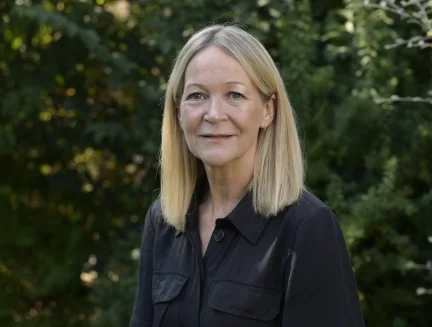Sylvia Conway
“Self awareness is a supreme gift, a treasure as precious as life. This is what make us human” — Irvin Yalom.
A safe space to talk about what feels overwhelming in your life. You may be feeling stressed, anxious or depressed, together we can explore this and find a way to understand and untangle these difficulties.
Welcome and thank you for visiting my website. My name is Sylvia, and I am a counsellor providing both short- and long-term counselling to adult individuals.
Counselling in a safe, comfortable and private setting
Life brings many challenges, and it’s understandable that we might need support in facing them. As a counsellor my role is role is to provide a safe and confidential space in which we can explore together your issues, your goals, and see your life from different perspectives. It can feel daunting to come to counselling but in telling your story, it can feel like a weight off your shoulders.
About me
I work using a relationship integrative model which means how we relate to ourselves and how we relate to others. I believe in the healing power of the therapeutic relationship as a means to reconcile relational wounds from the past.
I draw upon different theorists, from person centred and psychodynamic models, depending on what you need. Sometimes I might explore the past and how this is affecting you in the present and other times we will work in the present moment and what is accruing in the therapy space between me and the client.


I work with people from all walks of life with a diverse range of problems. I welcome difference and diversity.
I am a fully qualified counsellor, and I am a registered member of the British Association of Counselling and Psychotherapy and abide by their code of ethics.

Many clients present with Anxiety, Depression, stress, or a lack of meaning in their life. We can work together in a safe and non-judgemental way to explore what underneath this stuckness and find a way to heal.
The first session will be to explore what you need help with and how we can work together. I will also do an assessment / questionnaire to understand what your presenting issues are. I am committed to providing the best possible support to my clients.

Counselling sessions for individuals last 50 minutes and are £60.
Sessions usually take place on a weekly basis. I also provide a limited number of spaces for those on low income.
If you want to cancel appointment, I require 48 hours’ notice otherwise you will need to pay full amount for the session. I accept payment in cash, cheque or by bank transfer.
What issues can counselling help with?
People come to me for help a wide range of issues. Here are a few of the more common difficulties that can be supported through counselling:
Feelings of stress or anxiety
Panic attacks
Relationship problems
Grief, loss or bereavement
Problems with addiction
Trauma and post-traumatic stress
Abuse
Depression
Problems with confidence or self-esteem
Anger management
Issues relating to sexuality
Difficulties at work or in retirement
Problems with family
My location
I work from private offices located in Richmond, London and see clients from Twickenham, Kew, St. Margarets and surrounding areas.
Get in touch
Feel free to contact me if you have any questions about how counselling works, or to arrange an initial assessment appointment. This enables us to discuss the reasons you are thinking of coming to counselling, whether it could be helpful for you and whether I am the right therapist to help.
You can also call me on 07930 477072 if you would prefer to leave a message or speak to me first. I am happy to discuss any queries or questions you may have prior to arranging an initial appointment.
Some frequently asked questions
Many therapists tend to view Counselling as ‘short-term’ work; when someone has a problem that can be looked at and discussed in a clearly-resolvable way. This work often requires undertaking sessions for a certain number of weeks, to explore, discover and clarify a way forward. Therapy is a word used more to describe ‘long-term’ work; discussion that tends towards substantial issues and things that might be life-changing on a deeper level.
Whether counselling or therapy work best as a short- or long-term option depends on the client though, and the difficulties they are facing. In some cases counselling can prove helpful as a continuing, longer-term option, or therapy can help resolve an issue in just a few sessions.
There’s no fixed or ideal length of time for the counselling process; it varies from person to person and will often depend on the depth of the issues they are facing. While I can work on an open-ended basis with clients, I find it is helpful for us to both agree before we start on undertaking a certian nunebr of sessions and reviewing where we are at once we reach that point. You are able to decide how long your therapy willl last, and in return my aim is to make sure therapy continues for only as long as it is of benefit to you.
This depends on what your needs are. Some people find that after only a very few sessions they have some clarity and focus and are ready to end the therapy. Other people value the ongoing support and relationship with me and will continue to come for weeks, months, or even years. There is no 'one-size-fits-all' when it comes to therapy.
My aim is to offer you a first appointment, known as an assessment session within 1-2 weeks, this is once we receive your completed client pack back. However, waiting times will vary according to pressure on our resources, your own availability and the service you seek.
An appointment to our short term counselling, which is not subsidised, can be offered within about one week.
Confidentiality is one of the main ways in which therapy differs from many other forms of helping - for example, talking to friends or family can rarely offer the same degree of confidentiality as talking to a counsellor. Because of this confidentiality, you will find that - as you get used to coming for therapy - you are freer to talk about whatever you wish to.
No therapist can offer 100% confidentiality: there are some situations where the law requires disclosure of risk (e.g. certain child protection issues) and in common with most other therapists, there are some situations where I may not be able to keep total confidentiality. In particular, if someone tells me that they are thinking of harming themselves in a way that I believe puts them at serious risk, or if someone tells me that they are doing something that could put others at risk, I may not be able to keep such information confidential. However, breaking confidentiality is rare, and only happens after talking to the person concerned.
When you come for counselling it's important that you feel free to talk about whatever is important to you. Sometimes, you may not be clear what those issues are. Having a friend or family member with you is not usually helpful because they may have their own agenda for you. Even if this is just that they want to be supportive, or want you to 'get better', this agenda can prevent us opening issues up. When you come for therapy, you may need to explore thoughts or behaviours about which you feel ashamed or embarrassed and you may censor yourself so as not to hurt someone, or you may find that what they want you to talk about is not really what you need to discuss.
Sometimes, family/friends can even be part of an underlying issue which needs to be aired and discussed. Usually, people who ask this question are nervous about coming for a session alone, or they are anxious for the person who is thinking about arranging sessions. This anxiety is quite normal, and you will not be forced to talk about anything you feel uncomfortable about - but you do need to be able to talk about whatever is important. For this reason, I do not see clients accompanied by friends or family
© Sylvia Conway
powered by WebHealer
